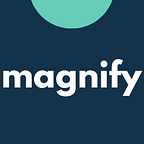What does your research involve?
My research involved conducting a review of virotherapy and its potential as a cancer treatment. Virotherapy essentially involves injecting live viruses into tumor beds, which provide oxygen to the tumor, with the goal of slowing the abnormal growth and replication of cancer cells. In virotherapy, the viruses are manipulated in the lab to locate and target only tumor cells, not healthy cells, in contrast with chemotherapy, which attacks all cells in the body. After the viruses are altered, they are called oncolytic viruses, or OV. I researched two different paths, replicating and non-replicating viruses, and their ability to reduce cancer growth. In non-replicating viruses, factors such as anti-inflammatory cytokines, or anti-inflammatory signaling molecules, are used to kill the tumor cells. On the other hand, replicating viruses only divide in tumor beds, attacking the cancer cells while leaving healthy cells completely unharmed.
What inspired you to delve into this research topic?
My inspiration came from my grandmother’s diagnosis of breast cancer in 2018. The diagnosis came as a surprise to my entire family, and all at once, we were submerged into looking for the best path of treatment to take with the team of doctors. I began researching various cancer treatments until I discovered OV therapy, and have been researching this topic ever since.
What was your role in this research project?
I was the main ideator and sole researcher of this project, which means I reviewed several research papers independently. I thoroughly read and learned about the content in each study to better understand the topic and current results of the various experiments, trials, and studies.
Why did you choose to do research independently rather than under the mentorship of a professor?
I chose to research independently because this topic is extremely personal to me, and I like to research at my own pace and follow my own process. I also began researching with a mission in mind: to help my grandmother. But after she passed away, I felt that it was my duty and tribute towards her and every cancer patient to continue on with my research, in hopes of reaching a point where I can potentially save lives.
What are some things or who are some people who helped you be successful with your research?
Two people who kept me going in my research were my grandmother and my 5th grade Arabic teacher who were both diagnosed with breast cancer. They allowed me to continue with my work even amidst difficult times. When making progress was difficult, I saw and heard them both in my head urging me on. With this motivation, I realized I could reach a point where I can write a scientific publication with a clear conclusion, contributing to the field of cancer therapy and potentially saving many lives.
What resources were invaluable or crucial to your research project? Examples include online, publicly accessible datasets, books, or people.
Most of my resources were online, ranging from research and scholarly articles to books and clinical trials, so the Internet was crucial to my research from beginning to end. I began with a simple question, which led me to pages upon pages of articles for me to indulge in. Every article, in turn, showed me another, until I was deep into the research with over 100 Chrome tabs open. The most helpful resource and the starting point for my extensive research was definitely the National Cancer Institute’s website, where I read about all the different types of cancers. Google Scholar and other open access websites were very useful as well.
Explain some of your key findings.
My key findings were:
- Cancer is complicated, to say the VERY least. I researched for two years, and a definitive answer regarding oncolytic virus (OV) therapy remained unclear. I was able to pinpoint what the latest studies have concluded, but all points were up for debate, criticism, and improvement.
- Replicating viruses worked more effectively in humans and on tumor beds than the non-replicating viruses, but OV therapy remains under construction and research. There can still be much progress in this field, to which I hope to contribute in my career.
Was there something that you feel you could’ve improved about your research process?
In the future, I would definitely perform my research under more professional circumstances, under the mentorship of an expert in cancer treatments. That way, I would be able to have a more organized research project, where I could better understand sub-topics such as the behavior of different cancers at different stages. I would gain invaluable knowledge through asking questions and receiving one-on-one explanations. Having a mentor would have given me a larger scope of research, through reflecting and bouncing ideas back and forth. It also would have provided me with access to research, conversations, and collaborations with students and graduates on this topic.
What is your ideal career?
My ideal career is a general surgeon with a concentration in oncology.
Born and raised in Lebanon, Cynthia is a rising high school junior and an aspiring physician, highly passionate about improving cancer treatments. She loves reading novels, abstract photography, and poetry.
This article was written as part of STEMchats’ Blueprint program. Follow us on Instagram @stemchats and @blueprint.stemchats and visit our website
